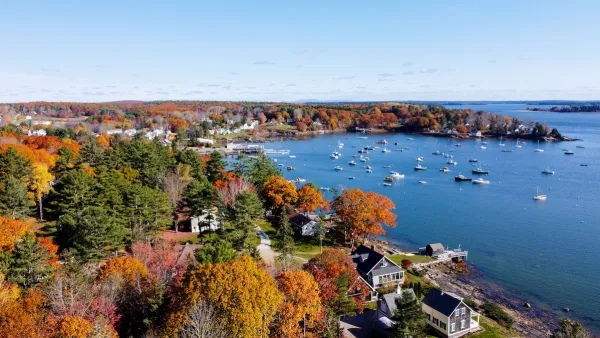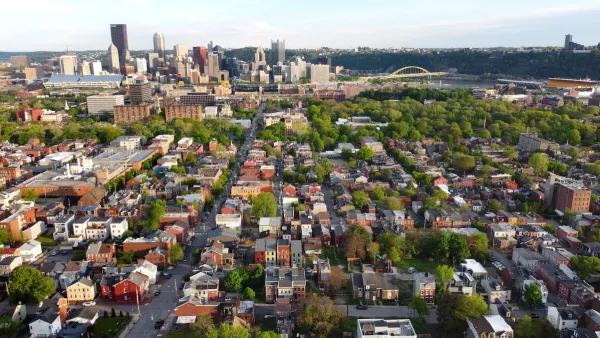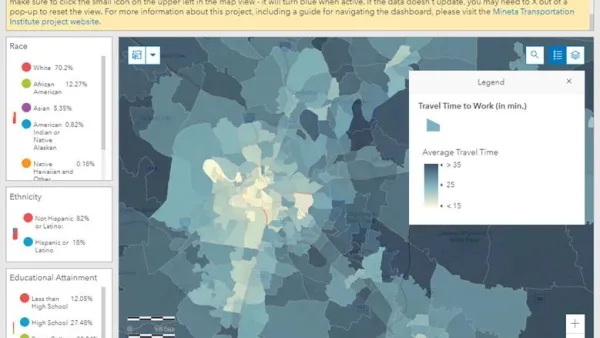Emily Badger delivers a lesson in how to navigate the linguistic minefield awaiting anyone who endeavors to talk about cities with those who don't live in one.
With seemingly innocuous, but loaded, terms like "urban", "smart growth", or "transit-oriented development" posing a potential minefield of antagonism towards ignorant planners, Badger seeks advice from those in the field as to what certain terms connote to those outside of cities, and strategies for workarounds.
The first lesson, delivered by Chuck Marohn, the executive director of the non-profit Strong Towns, is to recognize the danger inherent in using certain terms with condescending overtones such as "smart growth" or "auto-oriented". "That antagonistic language keeps us from having this broader dialogue," Marohn says. "It allows us to remain polarized round issues that at their central core are universal. We all want to live in places that we like. We all want to feel safe. We all want access to food, shelter, recreation, entertainment. These are things that are essentially universal."
The next lesson is to find a common language to address what are often common concerns between small town and urban residents. To Mahon this common language is "the language of economics, of debt and prosperity and gas price."
According to Badger, "It's not that cities need 'smart growth' and rural towns are destined to die in the mass exodus from dumb farms to sardine-like urban apartments. Rather, everyone needs to figure out how to rebuild communities that aren't caught in the trap of endlessly expanding development – not because this pattern is morally or environmentally problematic, but because it's financially so."
FULL STORY: How To Talk About Cities Without Ticking Off Folks Who Don't Live There

National Parks Layoffs Will Cause Communities to Lose Billions
Thousands of essential park workers were laid off this week, just before the busy spring break season.

Retro-silient?: America’s First “Eco-burb,” The Woodlands Turns 50
A master-planned community north of Houston offers lessons on green infrastructure and resilient design, but falls short of its founder’s lofty affordability and walkability goals.

Delivering for America Plan Will Downgrade Mail Service in at Least 49.5 Percent of Zip Codes
Republican and Democrat lawmakers criticize the plan for its disproportionate negative impact on rural communities.

Test News Post 1
This is a summary

Test News Headline 46
Test for the image on the front page.

Balancing Bombs and Butterflies: How the National Guard Protects a Rare Species
The National Guard at Fort Indiantown Gap uses GIS technology and land management strategies to balance military training with conservation efforts, ensuring the survival of the rare eastern regal fritillary butterfly.
Urban Design for Planners 1: Software Tools
This six-course series explores essential urban design concepts using open source software and equips planners with the tools they need to participate fully in the urban design process.
Planning for Universal Design
Learn the tools for implementing Universal Design in planning regulations.
EMC Planning Group, Inc.
Planetizen
Planetizen
Mpact (formerly Rail~Volution)
Great Falls Development Authority, Inc.
HUDs Office of Policy Development and Research
NYU Wagner Graduate School of Public Service





























